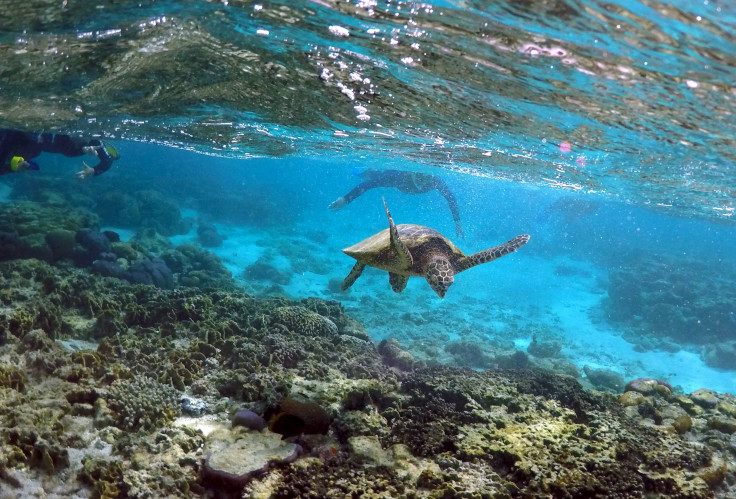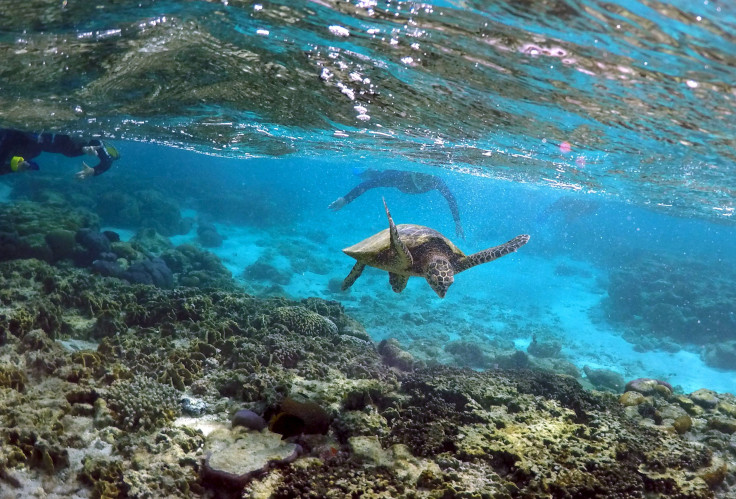Great Barrier Reef Not Adequately Protected From Coral Bleaching By Australia

Australia hasn’t done nearly enough to protect its most valuable national treasure, the Great Barrier Reef, according to environmental advocates. United States-based Earthjustice and Environmental Justice Australia released a report during a meeting in Paris Thursday in which they showed that Australia had failed to live up to its responsibilities.
“Australia is failing to fulfill its obligation under the World Heritage Convention to protect the Great Barrier Reef from the impacts of climate change,” the report read.
Read: Ocean Pollution Leads To Dead Whale With Stomach Full Of Plastic Bags Found Beached, Starving
As per World Heritage Convention guidelines, Australia had a “primary responsibility for protecting and conserving the Great Barrier Reef” and it “must address both existing and potential threats to the reef, whatever their source.” According to the report’s findings, Australia fell far short of its duties.

The 1,400-mile reef off the coast of Australia suffered its worst coral bleaching event ever in 2016 thanks to rising sea temperatures. About a fifth of the corals died during the event.
The algae that live inside corals give them their extraordinary color and provide the nutrients corals need to live, but corals have a limited temperature range in which they can survive. When temperatures exceed certain limits, the corals get “stressed” and release the algae, losing their color and becoming effectively “bleached.”
The U.S. National Oceanic and Atmospheric Administration’s Coral Reef Watch warned of an increased threat for coral bleaching during the warmer months of 2017.
The report outlined appropriate steps to be taken during the World Heritage Committee’s meeting in July 2017, including the implementation of the Reef 2050 Plan, Australia’s plan to sustain and conserve the Great Barrier Reef. It requested that Australia deliver an annual report on the reef’s health, ensure it meets commitments for greenhouse gas emission reduction as per the Paris Agreement and pledge not to support any development projects that might harm the reef.
“Corals around the world are bleaching and dying because of ocean warming and acidification caused by out of control greenhouse gas emission,” said Noni Austin, a lawyer for Earthjustice and an author of the report, according to the Sydney Morning Herald. “The plight of these corals – and of the World Heritage sites on which they depend – is growing more dire every year.”

© Copyright IBTimes 2024. All rights reserved.






















